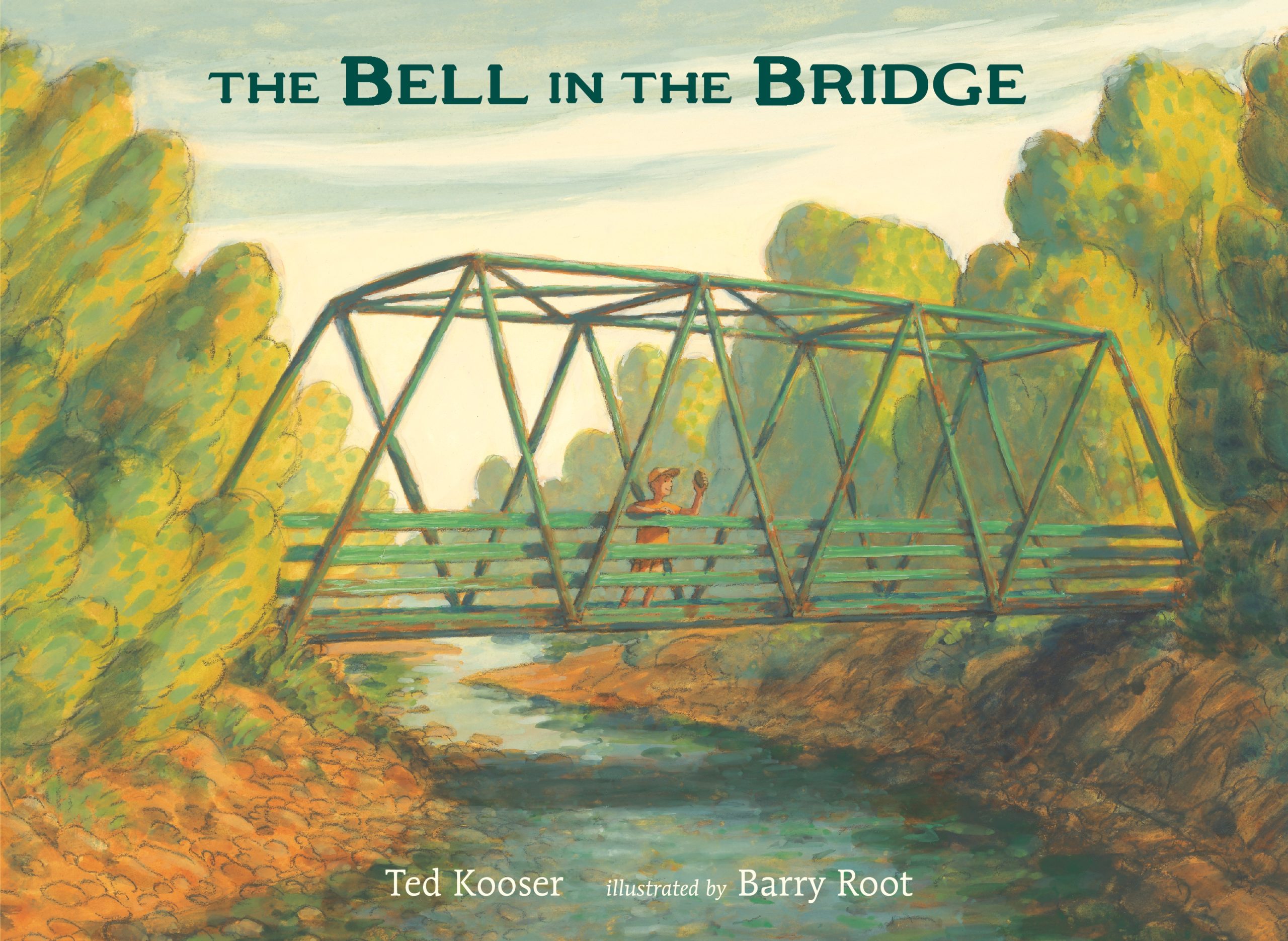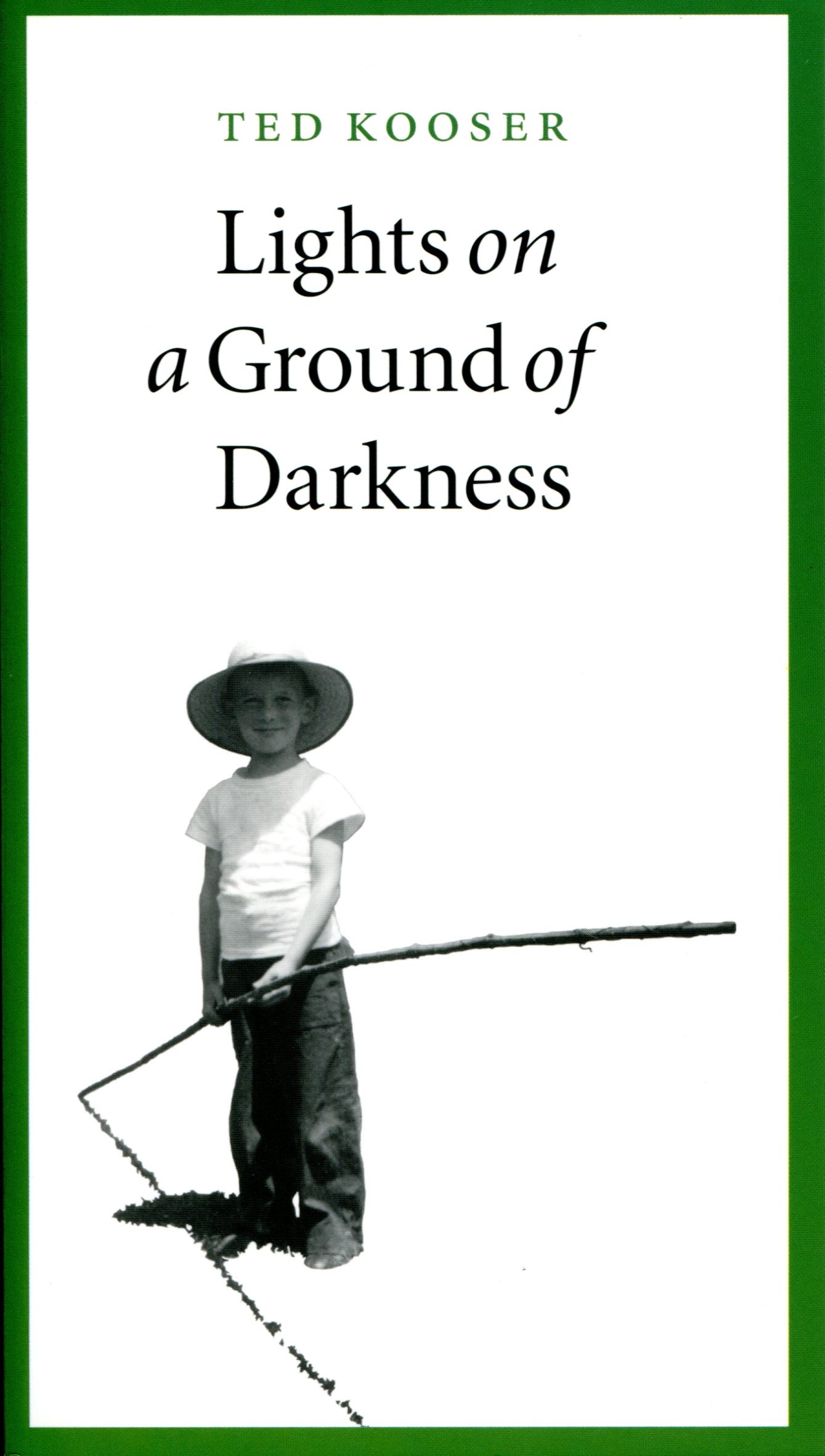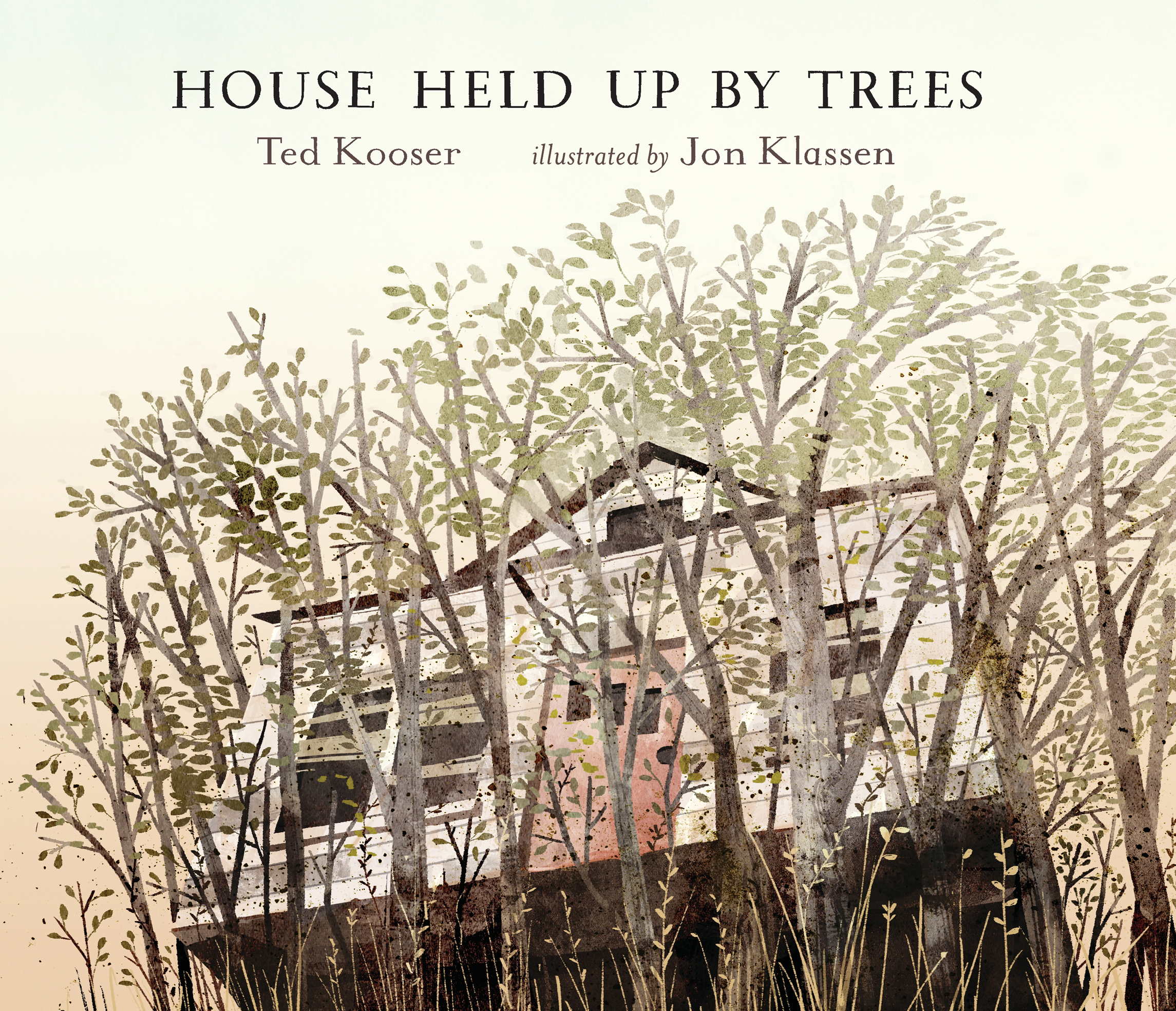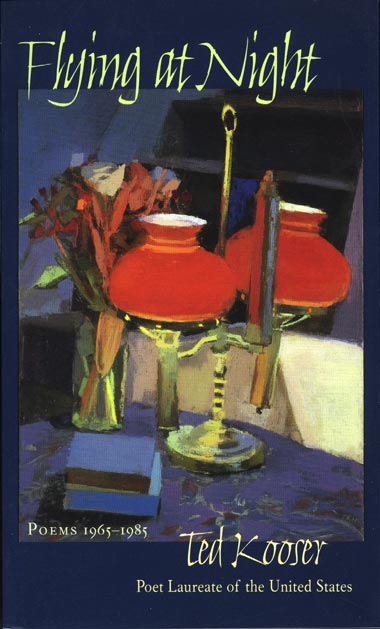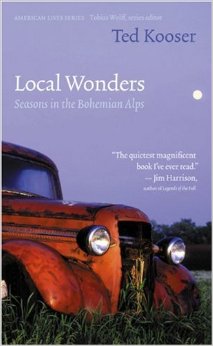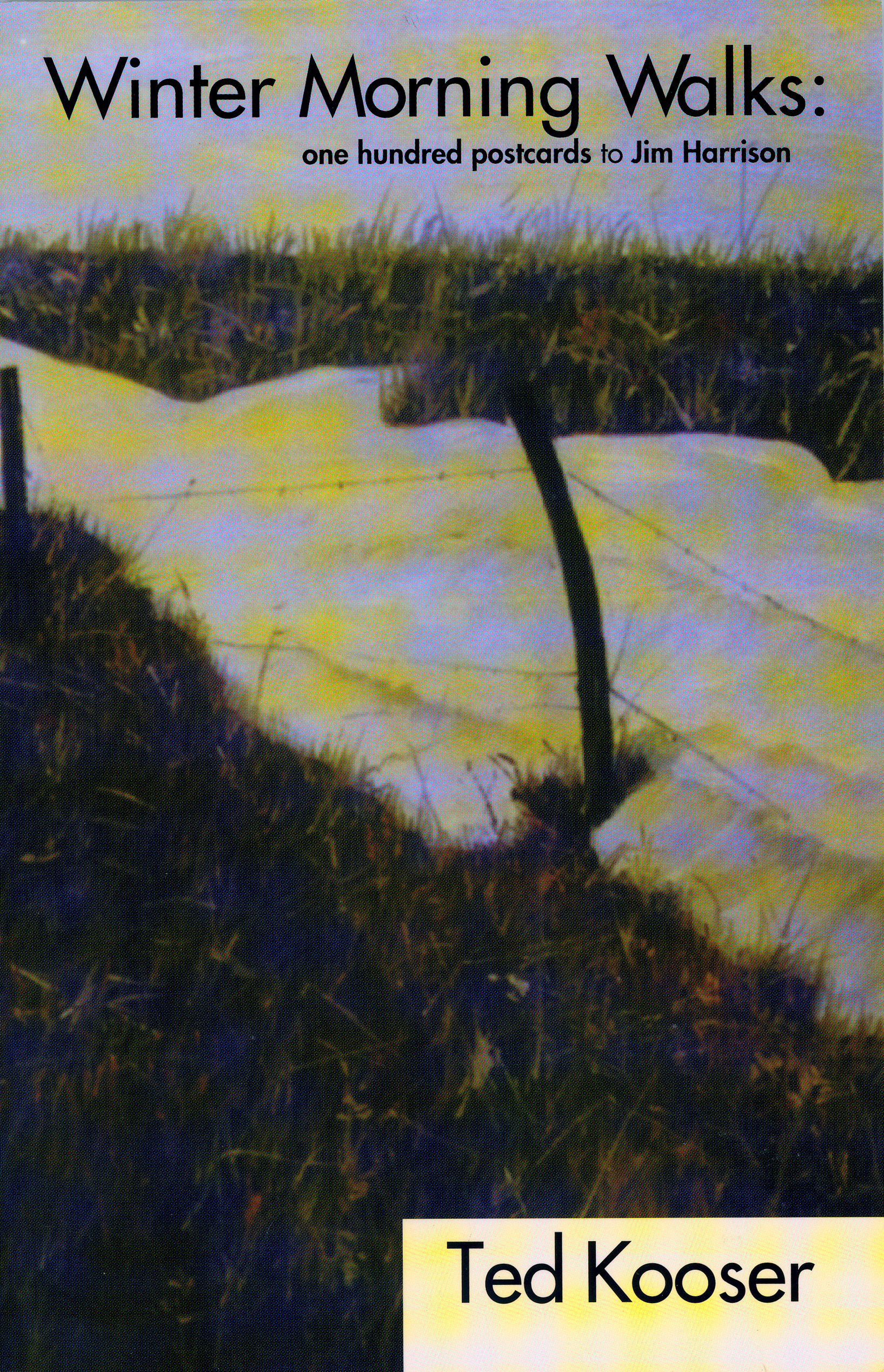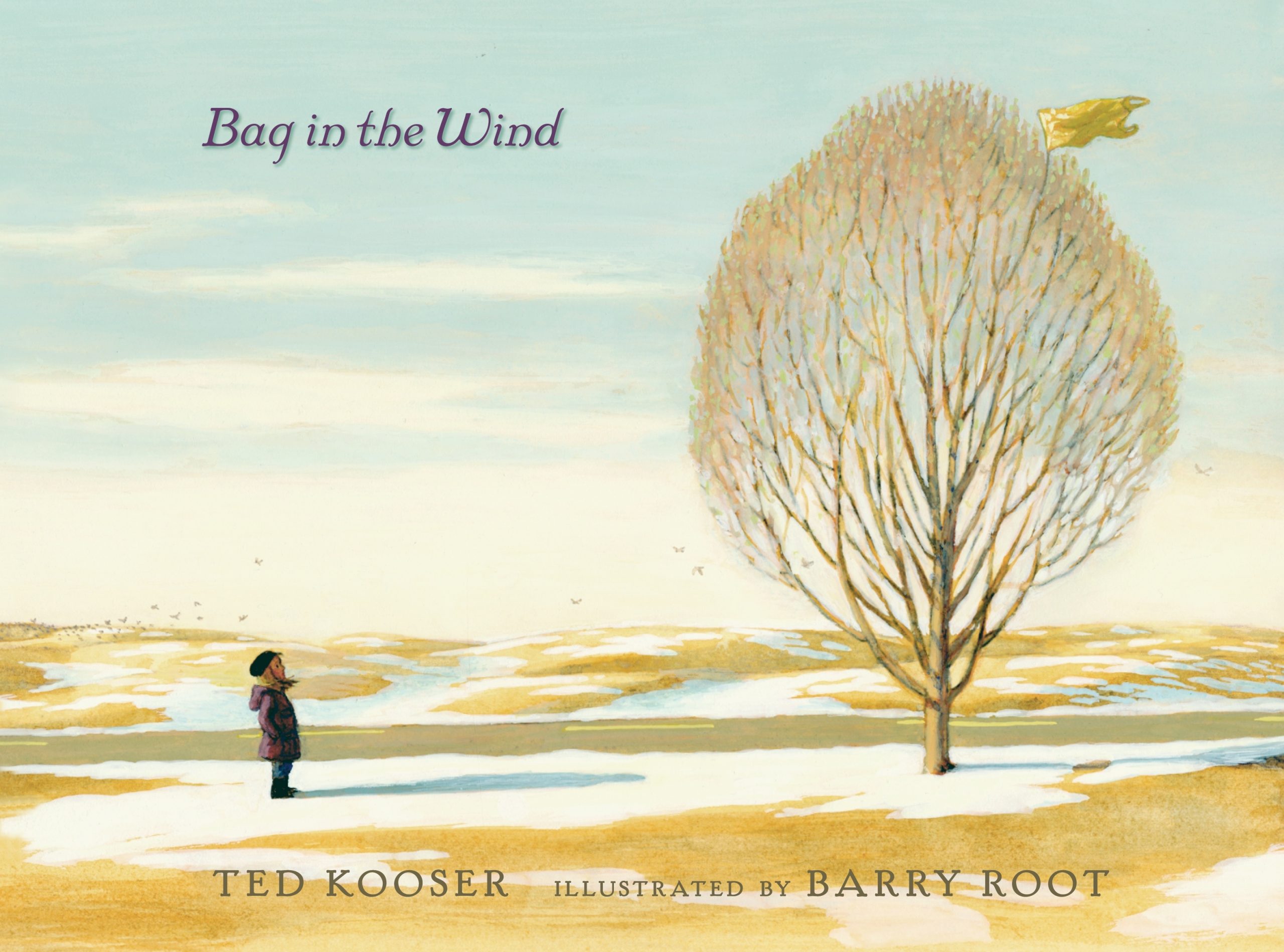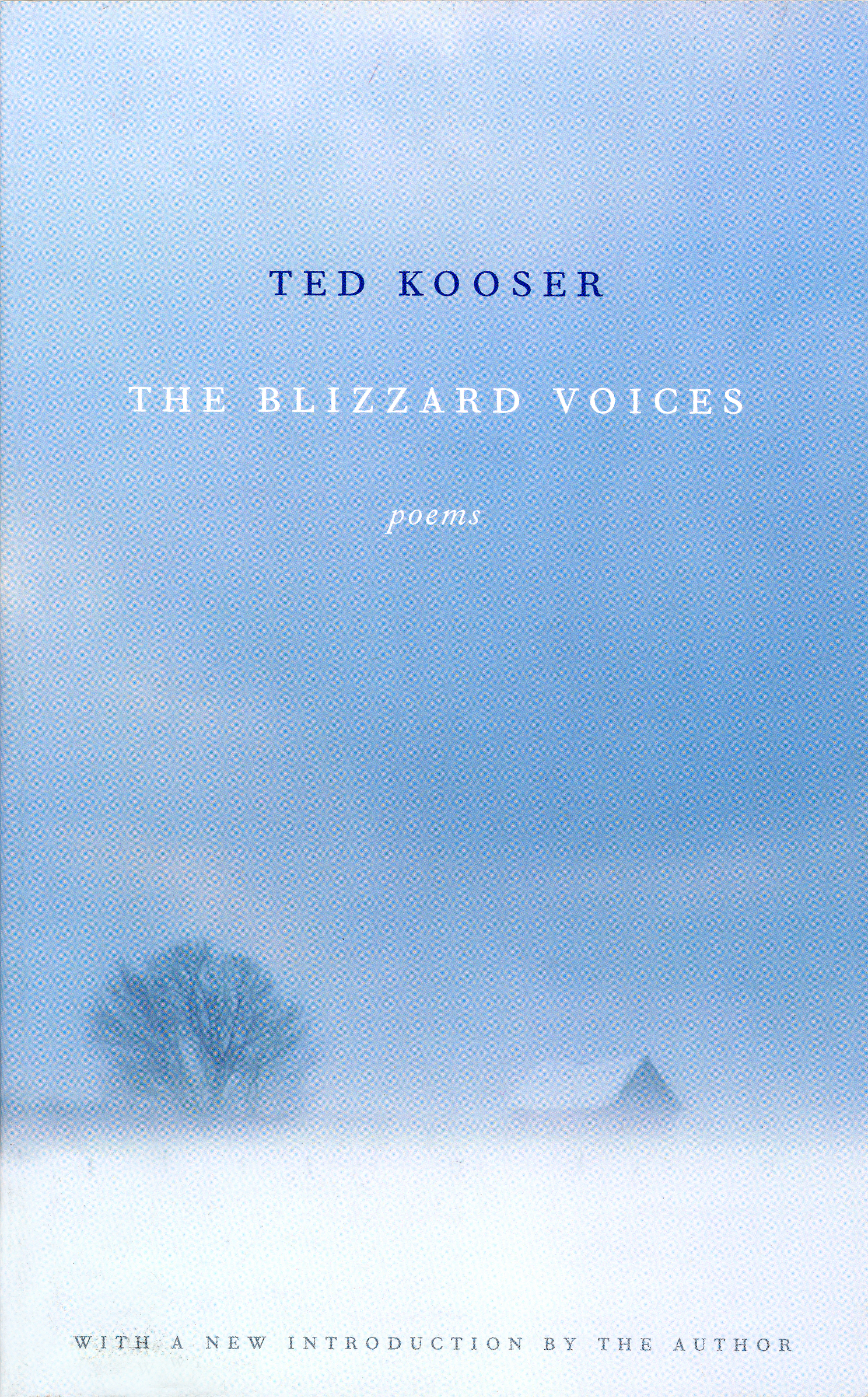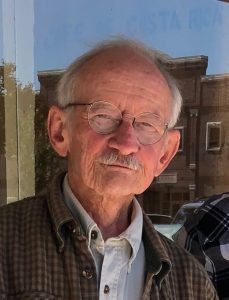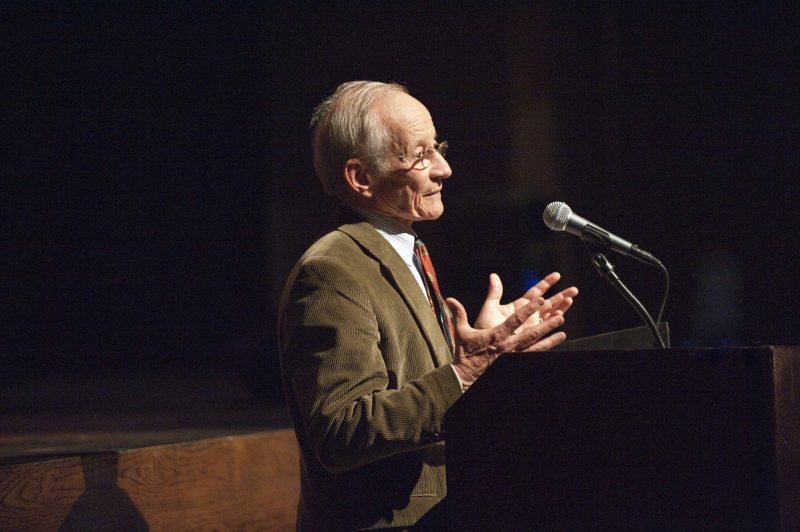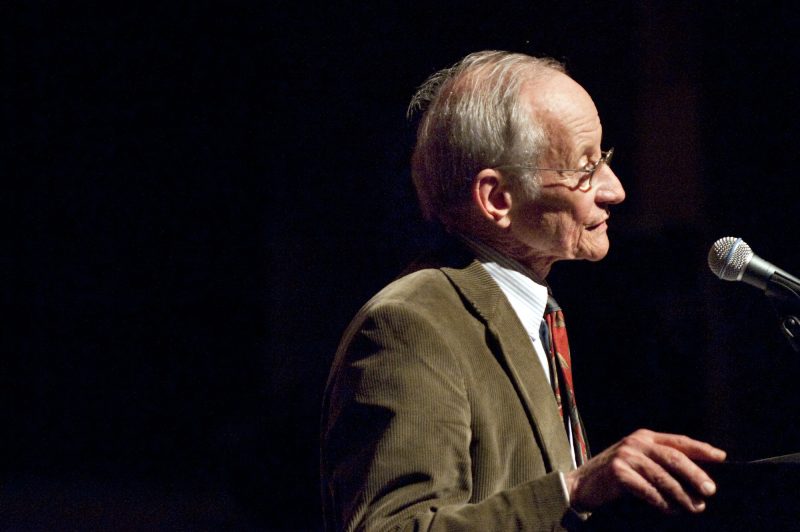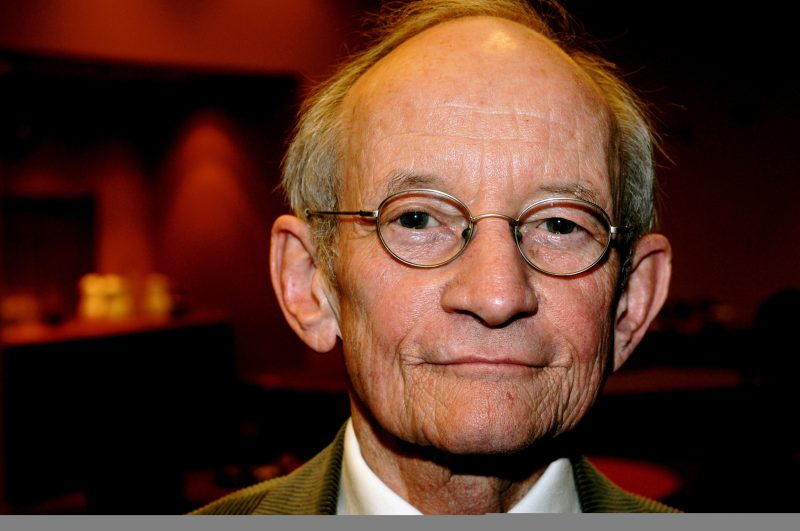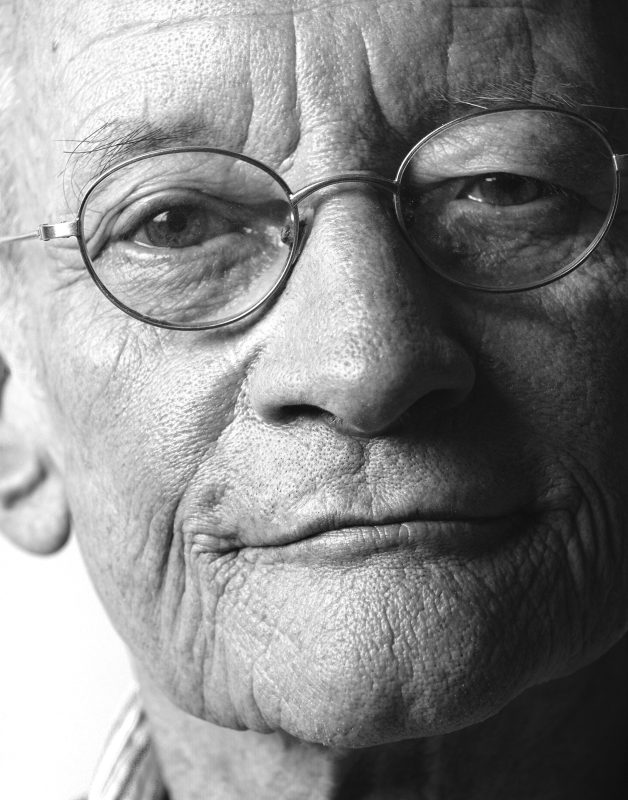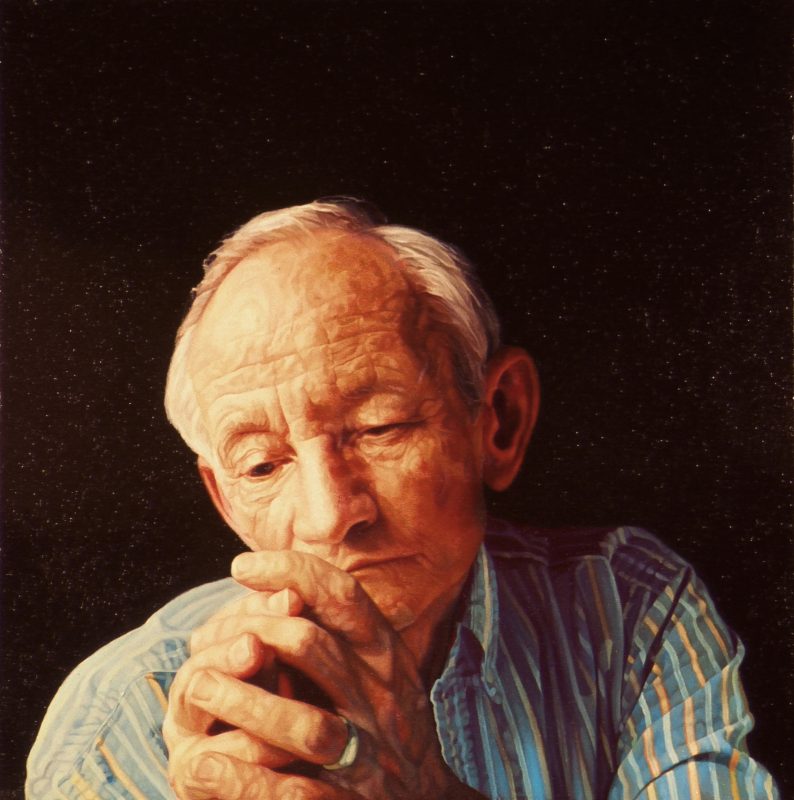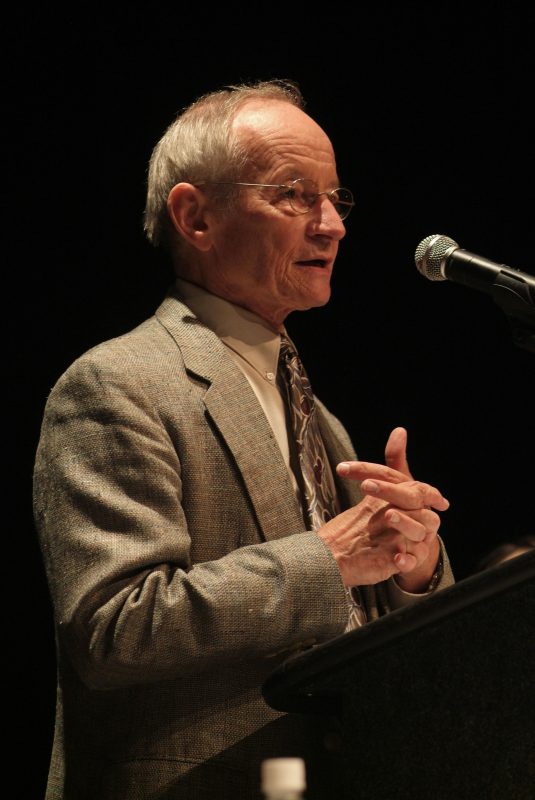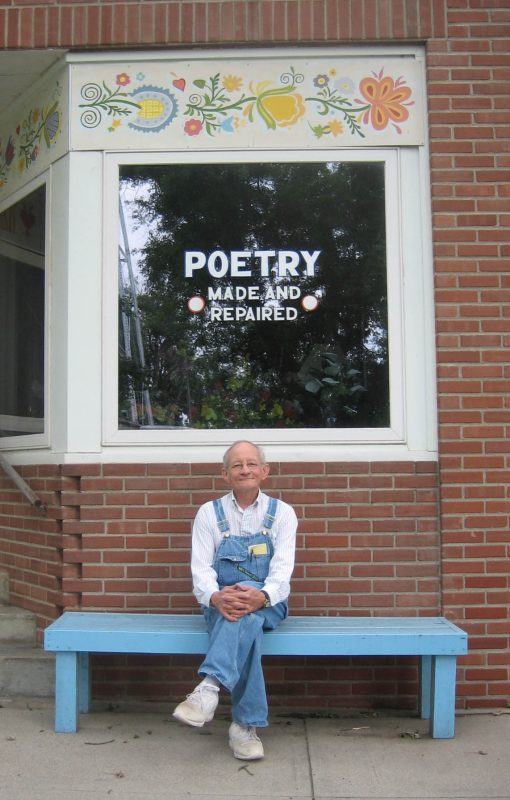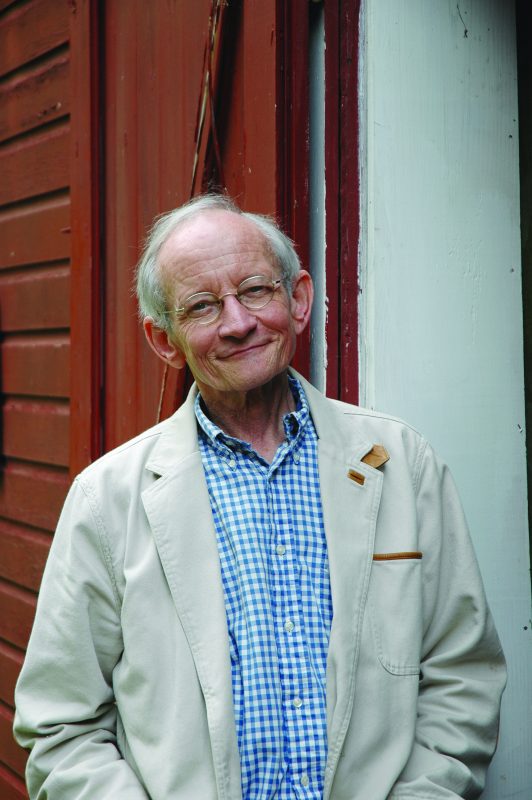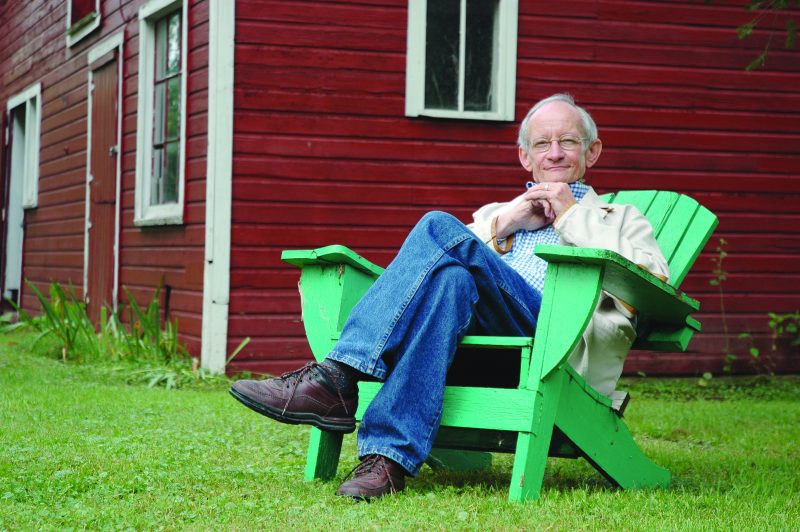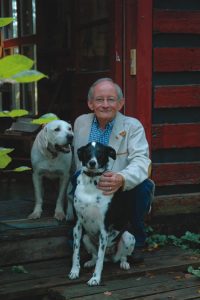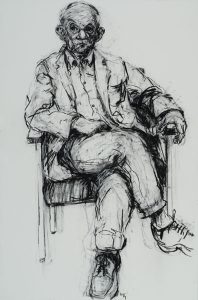
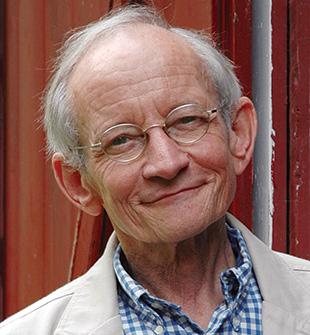
Ted Kooser
United States Poet Laureate (2004-2006)
Pulitzer Prize-winning Poet
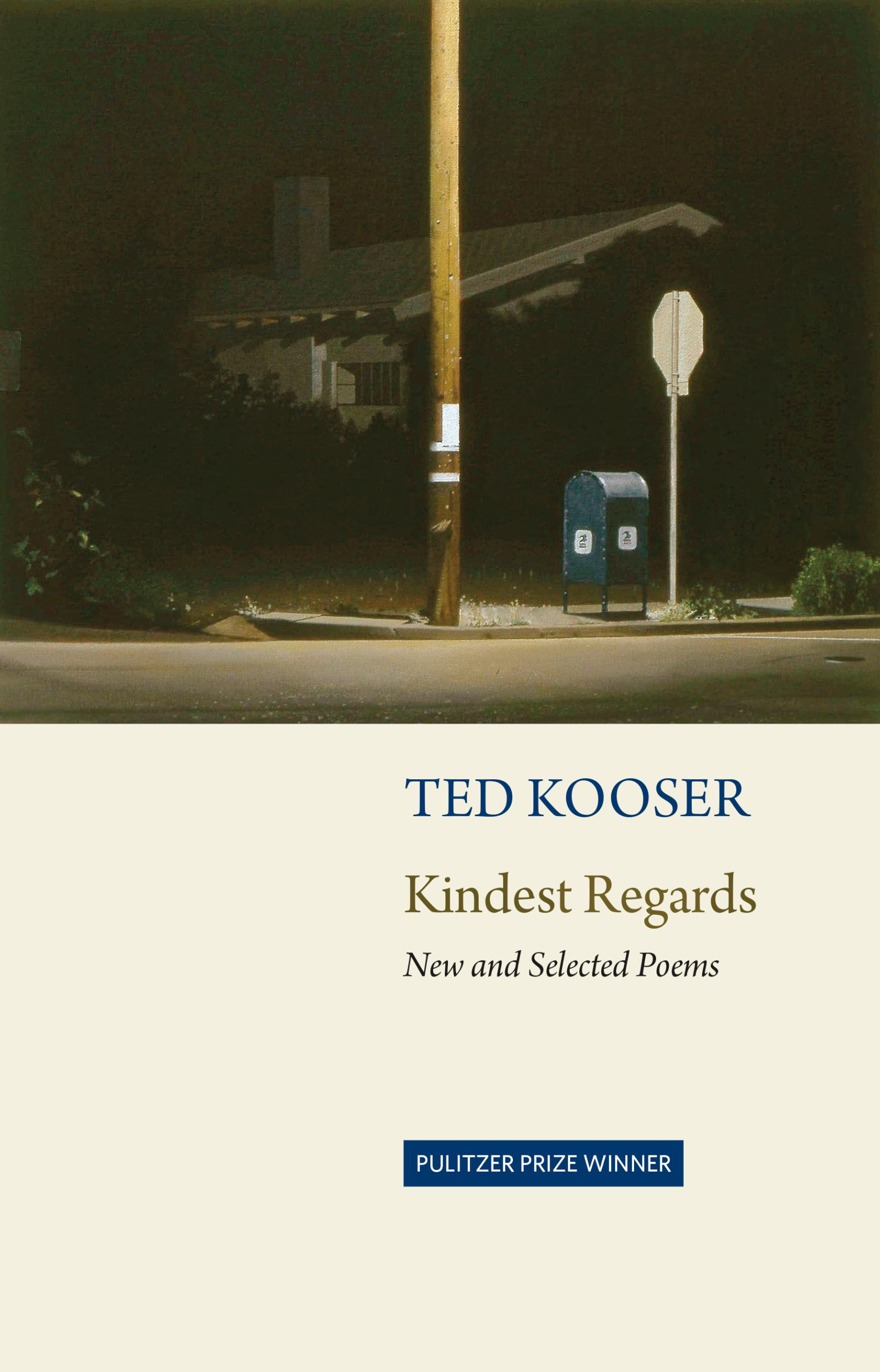
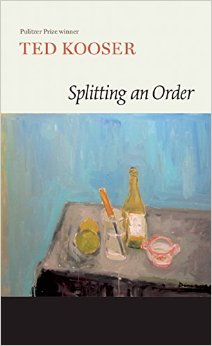
Readings &
Lecture Topics
- Two Years in the Catbird Seat: My Experience as Poet Laureate
- Fine Tuning Metaphors
- Poetry and Cancer Recovery
- An Evening with Ted Kooser
Biography
“Ted Kooser is an American original, whose work in poetry is akin to the paintings of Grant Wood and the music of Aaron Copland. Kooser’s poetry is regional and realistic, as lean as Shaker furniture, and like Shaker furniture it is a poetry that values aesthetic beauty, formal economy, and practical use.” —Kenyon Review
“Read individually, his poems sparkle with insight. Read together, they provide a broad and believable portrait of contemporary America.” — Dana Gioia
“There is a sense of quiet amazement at the core of all Kooser’s work.” —Ed Hirsch
Two-time United States Poet Laureate (2004-2006), the highly regarded Nebraskan poet Ted Kooser was the first poet from the Great Plains to hold the position. A professor of English at the University of Nebraska-Lincoln, he is the author of thirteen full-length collections of poetry, including Weather Central (University of Pittsburgh Press, 1994) and Delights and Shadows (Copper Canyon), which won the 2005 Pulitzer Prize. His two collections, Splitting An Order (Copper Canyon) and The Wheeling Year (University of Nebraska Press), were released in 2014. Kooser’s most recent collection Kindest Regards (Copper Canyon, 2018) celebrates his sixty years as a working American poet and includes both old poems and new. Kooser’s writing is known for its clarity, precision, and accessibility; and his poems are included in textbooks and anthologies used in both secondary schools and college classrooms across the country. In addition to poetry, Kooser has written in a variety of forms including plays, fiction, personal essays, literary criticism, and children’s books. As Poet Laureate he started the American Life in Poetry project.
The Poetry Home Repair Manual (University of Nebraska Press, 2005) gives beginning poets tips for their writing. Lights on a Ground of Darkness (University of Nebraska Press, 2010) is a memoir of family stories. His first book of prose, Local Wonders: Seasons in the Bohemian Alps (University of Nebraska Press, 2002), won the Nebraska Book Award for Nonfiction in 2003 and Third Place in the Barnes & Noble Discover Great New Writers Award in Nonfiction for 2002. The book was chosen as the Best Book Written by a Midwestern Writer for 2002 by Friends of American Writers. It also won the Gold Award for Autobiography in ForeWord Magazine’s Book of the Year Awards. He has written three children’s books from Candlewick Press, The Bell in the Bridge (2015), Bag in the Wind (2010), illustrated by Barry Root, and The House Held Up by Trees (2012). In the spring of 2014, a literary biography of Kooser written by Mary K. Stillwell was published by University of Nebraska.
Over the years his works have appeared in many periodicals including The Atlantic Monthly, Poetry, The Hudson Review, The Nation, The American Poetry Review, The Kenyon Review, Prairie Schooner, and Antioch Review. He has received two NEA fellowships in poetry, four Pushcart Prizes, the Stanley Kunitz Prize, The James Boatwright Prize, and a Merit Award from the Nebraska Arts Council.
Born in Ames, Iowa, in 1939, Kooser earned a BS at Iowa State University in 1962 and an MA at the University of Nebraska in 1968. He is a former vice president of the Lincoln Benefit Life, where he worked as an insurance executive for many years. He lives on an acreage near the town of Garland, Nebraska, with his wife, Kathleen Rutledge, and dog Howard. He also has a son, Jeff, and two granddaughters, Margaret and Penelope.
Short Bio
A two-time United States Poet Laureate, Ted Kooser is the author of fifteen full-length collections of poetry, including Kindest Regards (2018); Splitting An Order (2014); Weather Central; and Delights and Shadows, which won the 2005 Pulitzer Prize. His prose books include The Wheeling Year (2014) and Local Wonders: Seasons in the Bohemian Alps, which won the Nebraska Book Award for Nonfiction in 2003. His writing has appeared in many periodicals including The Atlantic Monthly, Poetry, The Hudson Review, The Nation, The American Poetry Review, The Kenyon Review, Prairie Schooner, and Antioch Review. He has received two NEA fellowships in poetry, and written three children’s books from Candlewick Press, The Bell in the Bridge (2015), Bag in the Wind, illustrated by Barry Root, and The House Held Up by Trees.
Visit Author WebsiteVideos
Publications
Kindest Regards: New and Selected Poems
Poetry, 2018
This new collection celebrates Ted Kooser’s sixty years as a working American poet and includes generous selections from his first book, published at age 30, through all the intervening books, chapbooks, and special editions up to and including his a prize-winning chapbook, “At Home,: published at age 78. This book also includes a generous selection of new poems. Kindest Regards was chosen for the selection’s title to reflect the poet’s affection and respect for the world as he has encountered it during a long and happy life. The shadows of grief and loss fall over these poems, too, but they never succumb to dejection or self-pity.
Splitting and Order
Poetry, 2014
“Former U.S. Poet Laureate Kooser’s long-awaited follow-up to 2005’s Pulitzer Prize–winning Delights and Shadows is a journey of intimacies, a stroll through lives and minds via common objects and quotidian occurrences, that brims over with small profundities and discoveries.” —Publishers Weekly
Pulitzer Prize winner and best-selling poet Ted Kooser calls attention to the intimacies of life through commonplace objects and occurrences: an elderly couple sharing a sandwich is a study in transcendent love, while a tattered packet of spinach seeds calls forth innate human potential. This long-awaited collection from the former U.S. Poet Laureate—ten years in the making—is rich with quiet and profound magnificence.
The Bell in the Bridge
Children’s Book, 2016
When Charlie visits his hardworking grandparents in the summer, he often is left to himself, and he is lonely. So he goes out to play by the stream, with a tin can for tadpoles, a special weed-whacking stick, and stones to drop from the iron bridge. One day he notices that when he strikes the bridge with a big stone, it rings with a bong like a church bell and echoes into the valley. And sometimes a faint, very distant, different-sounding bong comes back. Is it an echo of an echo? Or could someone else, like him, be ringing another bridge altogether? The Bell in the Bridge reverberates with the mysteries and possibilities of childhood discovery, enhanced by illustrations that echo the warmth and magic of a solo summertime adventure.
Lights on a Ground of Darkness
Memoir, 2009
Like the yellow, pink, and blue irises that had been transplanted from house to house over the years, the stories of poet Ted Kooser’s family had been handed down until, as his mother lay ill and dying, he felt an urgency to write them down. With a poet’s eye for detail, Kooser captures the beauty of the landscape and the vibrancy of his mother’s Iowa family, the Mosers, in precise, evocative language. The center of the family’s love is Kooser’s uncle, Elvy, a victim of cerebral palsy. Elvy’s joys are fishing, playing pinochle, and drinking soda from the ice chest at his father’s roadside Standard Oil station. Kooser’s grandparents, their kin, and the activities and pleasures of this extended family spin out and around the armature of Elvy’s blessed life. Kooser has said that writing this book was the most important work he has ever undertaken because it was his attempt to keep these beloved people alive against the relentless erosion of time.
Delights & Shadows
Poetry, 2004
Winner of the 2005 Pulitzer Prize for Poetry. For more than thirty years the 13th United States Poet Laureate (2004-2006) Ted Kooser’s poems have offered proof that poetry need not be forbidding, nor difficult, nor intentionally obscure. Here is a poet who works toward clarity and accessibility so that each distinctive poem appears to be as fresh and bright and spontaneous as a good watercolor painting. He is a haiku-like imagist and the “tender wisdom” infusing his poems has been compared to Chekov’s. These qualities are in abundance in Delights and Shadows, as Kooser draws inspiration from the overlooked details of daily life. Quotidian objects like a pegboard, creamed corn, and a forgotten salesman’s trophy help reveal the remarkable in what before was a merely ordinary world.
House Held Up by Trees
Children’s Book, 2012
When the house was new, not a single tree remained on its perfect lawn to give shade from the sun. The children in the house trailed the scent of wild trees to neighboring lots, where thick bushes offered up secret places to play. When the children grew up and moved away, their father, alone in the house, continued his battle against blowing seeds, plucking out sprouting trees. Until one day the father, too, moved away, and as the empty house began its decline, the trees began their approach. At once wistful and exhilarating, this lovely, lyrical story evokes the inexorable passage of time—and the awe-inspiring power of nature to lift us up. From Pulitzer Prize-winning poet Ted Kooser and rising talent Jon Klassen comes a poignant tale of loss, change, and nature’s quiet triumph.
The Wheeling Year
Prose, 2014
“Arranged by the months of the year, the plain-spoken and sometimes playful entries are also devotional in the sense that each one focuses intensely on a single moment, object, or scene, and can train us all to hone a similar focus on our everyday lives.” —Basalt
Ted Kooser sees a writer’s workbooks as the stepping stones upon which a poet makes his way across the stream of experience toward a poem. Because those wobbly stones are only inches above the rush of the days, sometimes what’s jotted there feels closer to life than any finished work that might come of it. Kooser, a former U. S. Poet Laureate and winner of the Pulitzer Prize, has filled scores of workbooks. The Wheeling Year offers a sequence of polished workbook entries that may be both closer and truer to life, and perhaps more moving, than any poem he might have forced into shape. The University of Nebraska Press presents this lovely book in the year in which Ted Kooser turns 75, with 60 years of workbooks stretching across the years behind him.
American Life in Poetry Project
The Poetry Foundation has formed a partnership with the Library of Congress to support the American Life in Poetry project, an initiative of Ted Kooser in his role as Poet Laureate Consultant to the Library of Congress. American Life in Poetry is a free weekly column for newspapers and online publications featuring a poem by a contemporary American poet and a brief introduction to the poem by Ted Kooser. The sole mission of this project is to promote poetry. In recent years poetry has all but disappeared from newsprint. Yet the attraction to it is still strong. Kooser, whose wife and son both work in journalism, writes, “Newspapers are close to my heart and my family. As Poet Laureate I want to show the people who read newspapers that poetry can be for them, can give them a chuckle or an insight.” To read the current column, or to view the column archives, visit American Life in Poetry.
Articles & Audio
Read What’s In Print
• Interview with Ted Kooser for National Poetry Month — The Writer’s Almanac
• About Ted Kooser’s American Life in Poetry, A Project for Newspapers
• Ted Kooser’s American Life in Poetry: 500 Columns and Counting — Library of Congress
• Review of Splitting an Order — Washington Post
• Review of Splitting an Order — Publishers Weekly
• Review of The Wheeling Year: A Poet’s Field Guide — Basalt
• Review of Valentines — New York Times Review of Books
• Interview about Poetry Home Repair Manual — Scholastic
• Review of Bag in the Wind (children’s book) — Kirkus Review
• Conversation & Four Poems from Delights & Shadows — Shenandoah Literary
• Interview with Two-time Poet Laureate — Writer’s Relief
• Interview: Drawn to the Ordinary World — Dallas Review
• Conversation with David Baker — Kenyon Review
Listen to Audio
• Reflections on Local Wonders — NPR
• “A Rainy Morning” Read by Garrison Keillor — The Writer’s Almanac

